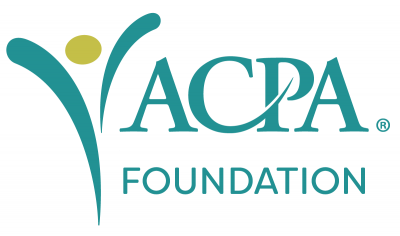Support
We’re Here for You
To assist Champions, Co-Chairs of Foundation Board of Trustees have been assigned to coordinate the Diamond Honoree program. The Trustees will offer ideas and suggestions, discuss fundraising approaches, and help the Champions achieve their goals.
Champion’s Checklist
- Submit completed nomination materials
- As soon as Honorees are announced, set a timeline for identifying coordinators identifying potential donors, and implementing the solicitation plan
- Submit a professional headshot and 200-word biography of your Honoree
- Recruit coordinators
- Identify list(s) of potential donors
- Choose your method; develop your message
- Inform potential donors that contributions are tax-deductible
- Communicate progress reports to coordinators every three weeks
- Thank contributors
- Confirm the Honoree’s attendance at the annual conference
- Produce a 90-second captioned video introducing your Honoree to be shown at the Diamond Honoree Reception
- Help invite and remind contributors to attend the Reception
- Attend the Diamond Honoree Reception at the ACPA annual conference
- Email reception photo of Honoree to all contributors
How to Accomplish Your Goal
Past successful champions have used these approaches:
Cast a Wide Net – Group potential contributors (for example, all colleagues from a specific institution) and invite 100% contribution from the group. Many will be willing to participate in some small way as part of a group, even if they do not know the Honoree well.
Campus Colleagues – Rely on a local coordinator at the Honorees’s present institution to solicit a group of peers (not direct reports) on behalf of the Honoree, and ask them to invite others whom they know to join the effort. The Honoree’s supervisor may be able to add suggestions of campus peers to contact.
Local Coordinator – Invite one person from every university where the Honoree has history to serve as the local coordinator for the campus. The local coordinator can identify and contact potential donors from the campus staff and other associates. Outreach efforts may include the Honoree’s staff (both students and professional staff), supervisor, campus peers, and corporate associates. The local coordinator might also provide the Champion a list of potential contributors who have moved to another university. Those names and contact information can be sent to the Champion for follow-up.
Former Colleagues – Identify and contact the Honoree’s former colleagues (e.g., staff from previous schools where the Honoree has worked) to encourage them to give individually or as a group to their colleague. The Advocate can individually solicit members of this group, or invite one of them to contact other colleagues and submit their donation as a group.
ACPA Entity Leadership – An executive officer or a past president of a Commission or State/International Division is always a good source. They may know and support the Honoree. This person has access to the email lists of the State/International Division or Commission members and can set the tone within the Division or commission to rally support for the Diamond Honoree.
Involve the Honoree! – Request from either the Honoree directly, their assistant or significant other, a list of colleagues who have been an important part of their career development. Make these colleagues aware of the significance of this award, and request their support, not only financially but with additional outreach to potential contributors.
Suggested Giving Levels for Professional Colleagues – Challenge subgroups to support the Honoree at the following levels:
Senior-level professionals: $100+ (less than $10/month)
Mid-level professionals: $40+ (less than $4/month)
New professionals: $20+ (less than $2/month)
Family Members – If you can make contact with an Honoree’s significant other, this person may be able to provide a list of other family members and personal friends who would want to support the Honoree.
Corporate Partners – Reach out to ACPA’s list of Corporate Partners. You never know whether they have developed a relationship with your Honoree over the course of their career.
